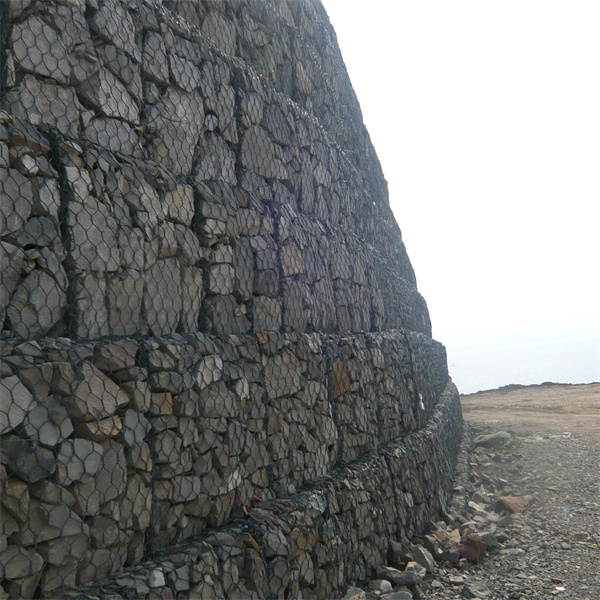Dek . 18, 2024 08:26 Back to list
Durable Wire Solutions for Constructing Strong Gabion Walls and Structures
The Importance of High-Quality Wire for Gabion Walls
Gabion walls have become increasingly popular in modern landscaping, civil engineering, and environmental conservation projects due to their durability and aesthetic appeal. These walls, composed of interconnected wire mesh cages filled with stones, are utilized for a variety of purposes including erosion control, retaining structures, and decorative features. However, the effectiveness and longevity of gabion walls heavily depend on the quality of the wire used in their construction.
The Role of Wire in Gabion Walls
The primary function of the wire in gabion walls is to provide structural integrity and stability. The wire mesh forms a cage-like structure that not only holds the stones in place but also withstands environmental pressures such as wind, water flow, and soil loads. Therefore, the selection of high-quality wire is crucial to ensure the gabion wall can resist these stresses over time.
Types of Wire Used for Gabion Walls
Gabion walls are typically constructed using either galvanized steel wire or PVC-coated wire.
1. Galvanized Steel Wire This is the most commonly used material in gabion construction. The wire undergoes a process of galvanization, which involves coating the steel with a layer of zinc to protect it from corrosion. High-quality galvanized wire has a thicker zinc coating, enhancing its resistance to rust and degradation, especially in moist environments.
2. PVC-Coated Wire For projects demanding additional aesthetic appeal or environmental resilience, PVC-coated wire is often preferred. This wire combines the strength of steel with a protective plastic coating that enhances durability and provides a range of color options. PVC coating significantly increases resistance to corrosion, making it an excellent choice for areas prone to harsh weather conditions.
Factors Affecting Wire Quality
high quality wire for gabion wall

When selecting wire for gabion walls, several key factors should be considered
- Diameter The thickness of the wire affects its strength
. Higher diameter wires are more robust and can withstand greater tensile forces, ensuring that the gabion maintains its shape over time.- Zinc Coating Weight Quality wire should have a sufficient zinc coating weight, typically measured in grams per square meter (g/m²). A heavier coating means better corrosion resistance, which is particularly important in humid or coastal environments.
- Weld Quality The way the wire is welded to form the mesh is also crucial. High-quality welding techniques ensure the mesh is strong and can flex without breaking, preventing issues such as disintegration or deformation of the gabion wall.
Benefits of Using High-Quality Wire
Investing in high-quality wire for gabion walls leads to numerous long-term benefits. It enhances the structural integrity of the wall, minimizing the risk of failure due to environmental factors. Additionally, high-quality materials often translate to lower maintenance costs over time, as they resist rust and damage more effectively than inferior alternatives.
Aesthetically, well-constructed gabion walls tend to blend seamlessly with their surroundings, adding value to properties. The use of quality wire ensures that these structures maintain their appearance and form, contributing to the overall landscape design.
Conclusion
In conclusion, the choice of wire is fundamental to the performance of gabion walls. High-quality wire provides the necessary strength and durability required to withstand environmental challenges while maintaining aesthetic appeal. Whether for landscaping, erosion control, or structural support, investing in high-quality wire should be a priority for anyone considering the construction of gabion walls. By ensuring that the wire used is robust, corrosion-resistant, and well-welded, builders can create lasting and effective solutions that enhance the beauty and functionality of their spaces.
-
how-to-install-wire-mesh-for-gabion-baskets-properly
NewsAug.22,2025
-
best-materials-for-filling-a-chain-link-gabion
NewsAug.22,2025
-
Wire Mesh Thickness Impact on Gabion Wall Load Bearing
NewsAug.12,2025
-
Ultimate Guide to Hexagonal Gabion Box
NewsAug.12,2025
-
Types of Rocks for Gabion Baskets Durability and Aesthetics
NewsAug.12,2025
-
Standard Gabion Box Sizes and Their Industrial Applications
NewsAug.12,2025
-
Easy Guide to Building Garden Gabion Cages at Home
NewsAug.12,2025






